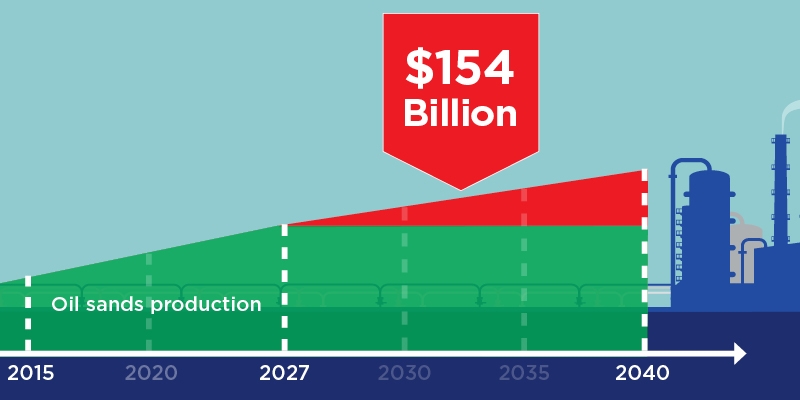How Alberta's Carbon Emission Cap Will Reduce Oil Sands Growth
— Published on August 16, 2016

Summary
- The Alberta government has proposed implementing a 100 megatonne (Mt) cap on greenhouse gas (GHG) emissions that result from oil sands operations.
- This paper estimated future emissions levels from oil sands production using oil sands production forecasts to 2040 from the National Energy Board.
- Based on estimates of future production, this policy has the potential to constrain future oil sands production. In a scenario based on current emissions intensity levels, the policy could reduce cumulative production between 2025 and 2040 by 3.34 billion barrels of oil. In a scenario where the emissions intensity of oil sands production is reduced, the policy could result in cumulative production losses between 2027 and 2040 totaling 2.03 billion barrels of oil.
- The cumulative value of the lost production could be large, totaling CA$254.74 billion (in 2015 dollars) in a scenario based on current emissions intensity levels. In a scenario where the emissions intensity of oil sands production is reduced, the cumulative lost value could be CA$153.41 billion (in 2015 dollars).
- The policy could cumulatively abate 236 Mt of CO2 equivalents, at an average cost of CA$1,035 (in 2015 dollars) per tonne of GHG emissions in the current emissions intensity level scenario between 2025 and 2040. The cumulative level of GHG abatement would be lower in a scenario where emissions intensity reductions occur but come at a higher cost.
- The 100 Mt cap on GHG emissions appears to place large costs on Canadians by potentially constraining future growth in oil sands development, while providing little in the way of avoided GHG emissions.
Authors:
More from this study
Subscribe to the Fraser Institute
Get the latest news from the Fraser Institute on the latest research studies, news and events.



